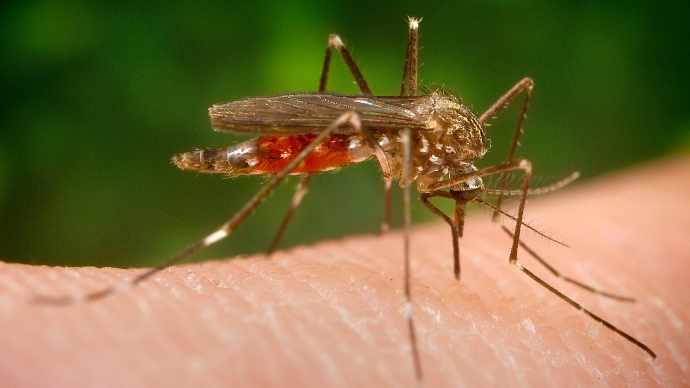 A new American study on mosquitoes presented by the American John Hopkins University has shown that these insects do not choose their prey at random. They would be equipped with specific sensors for a specific function, such as their attraction to the colors black, red or navy. Having sweet blood, turning off the light, spraying yourself with citronella… There are many misconceptions about mosquitoes. One thing is certain:
A new American study on mosquitoes presented by the American John Hopkins University has shown that these insects do not choose their prey at random. They would be equipped with specific sensors for a specific function, such as their attraction to the colors black, red or navy. Having sweet blood, turning off the light, spraying yourself with citronella… There are many misconceptions about mosquitoes. One thing is certain:
these insects feed on the proteins contained in our blood. But having sweeter blood would in no way be the cause of their bites. A new study published by scientists at Johns Hopkins University in Maryland has shown that mosquitoes don’t bite by chance. They would select their prey based on several factors and thanks to sensors. In a February 21, 2023 paper, American scientists said they had identified the receptors that would allow them to choose their prey. Located at the level of their antennae on nerve cells, these sensors would even make it possible to differentiate between species:
“Mosquitoes are sensitive to many odors. The receiver detects one odor and not another. To sum up, there is a receiver for each odor “ , explains Jean-Baptiste Ferré , entomologist of the Interdepartmental Agreement for the control of mosquitoes of the Mediterranean coast ( EID) in Montpellier. And to identify these new sensors, the scientists of the American university have used the technique of fluorescence in situ hybridization (FISH in English), which allows the localization of messenger RNA by fluorescent labeling on genes. Using this method, they were able to find 3 types of receptors in the mosquito’s complex olfactory system. Smell receptors, which allow insects to distinguish between humans and animals.they capture up to 50 meters , the carbon dioxide we emit. A pregnant woman or a sick person has a higher metabolism , emits more CO2 and will be much more likely to be bitten according to Jean-Baptiste Ferré. Specify:
“Mosquitoes are attracted to CO2 emitted by humans. But once excited by this CO2, they activate another receptor that will look for odors on our body such as body odor or even bacteria on our skin” . This second sensor therefore depends on the first. Called an ionotropic receptor , it is one of the most important in mosquitoes, especially Aedes aegypti. Captures acids and amino acids from the skin. According to a study published on the Florida International University website , removing or disrupting this receptor would reduce searches for mosquito hosts by 50% . John Hopkins studyit also evokes the preference of these insects for blood groups A and O rather than B. Jean-Baptiste Ferré does not explain it but evokes a possibility:
“They don’t explain it yet but we know that blood groups influence the composition of our blood and in particular our platelets. For example, people with type O have blood that is a little thinner and therefore easier for the mosquito to pump.” . He adds that these are trends and that there is no typical profile for these parasites:
“What I find interesting in the study is that there is not a single factor but many elements that combine. There are not people less affected but rather people less susceptible to these stings.” For the Montpellier entomologist there is no miraculous solution: “What works are skin repellents that have to be repeated several times. To date, there are only 4 recognized and approved repellent molecules. They don’t fly very well. ” But recently it has appeared a problem in Montpellier. The EID has noted that several species of marsh mosquitoes are now moving towards the outskirts of the city:
“In particular tiger mosquitoes , which are attracted to stagnant water , ” explains Jean-Baptiste Ferré . And for the future, nothing is less certain. Episodes of severe drought are often followed by stormy episodes: ” And this allows tiger mosquito eggs to hatch in cities and swampy areas”. According to the EID expert, if climate change becomes more severe, summers will be hotter and therefore less favorable to the development of mosquitoes, but “on the other hand, we will undoubtedly have mild springs and winters, which will allow mosquitoes to spread proliferate much more “. For Giovanni D’Agata, president of the ” Rights Office “, good news to prevent mosquito bites or even diseases.
#mosquito









